Introduction to Kantara Chapter 1
Kantara Chapter 1, released in 2025, has quickly become one of the most talked-about Indian films of the year. Directed, written, and performed by Rishab Shetty, this epic saga is more than just a cinematic experience—it’s a spiritual journey that immerses audiences in the timeless bond between man, nature, and divinity. Following the unprecedented success of Kantara (2022), which set benchmarks in blending folklore with cinematic storytelling, the prequel had sky-high expectations. Fortunately, Kantara Chapter 1 not only lives up to the hype but also surpasses it, establishing itself as a monumental work of Indian cinema.
The film dives deep into the origins of the mystical world introduced in the first part, unraveling unanswered questions while laying the foundation for the saga ahead. With its gripping narrative, awe-inspiring visuals, and soul-stirring performances, Kantara Chapter 1 cements Rishab Shetty as one of the most visionary filmmakers in modern Indian cinema.
Background of the Kantara Franchise
The original Kantara (2022) was not just a film; it was a cultural movement. Set in coastal Karnataka, it highlighted Bhoota Kola (a traditional folk ritual) and explored the conflict between man and nature, power and faith, greed and sacrifice. Audiences resonated deeply with its authentic storytelling, earning it both critical acclaim and massive box office success.
With Kantara Chapter 1, Rishab Shetty takes audiences back several centuries, crafting a mythological prequel that explains the divine roots of the mystical elements in Kantara. It’s not merely a continuation but a foundation stone that enriches the lore, weaving mythology, folklore, and spirituality into a powerful cinematic narrative.
The film doesn’t shy away from exploring complex themes like human ambition, divine justice, and ecological balance. Instead, it uses them to build a universe that feels both grand and intimate.
Plot Overview of Kantara Chapter 1
Without revealing spoilers, the film begins centuries before the events of Kantara (2022). It traces the journey of a king who strikes a sacred pact with divine forces, promising prosperity in exchange for devotion and harmony with nature. However, as generations pass, greed, arrogance, and power struggles disturb this fragile balance.
The central narrative revolves around the eternal bond between deities and mankind, a theme that echoes strongly in Indian cultural consciousness. Through intense action sequences, emotional confrontations, and mystic revelations, the story unfolds like a tapestry of faith, power, and destiny.
Mythological Inspirations Behind the Story
Kantara Chapter 1 draws inspiration from Indian epics like the Ramayana and Mahabharata, blending them with Karnataka’s rich folklore traditions. The depiction of deities, rituals, and supernatural forces feels authentic, reflecting Rishab Shetty’s deep respect for cultural heritage. This combination of mythology and local traditions adds a universal appeal, making the story resonate not just with Indian audiences but with global viewers who appreciate mythic cinema.
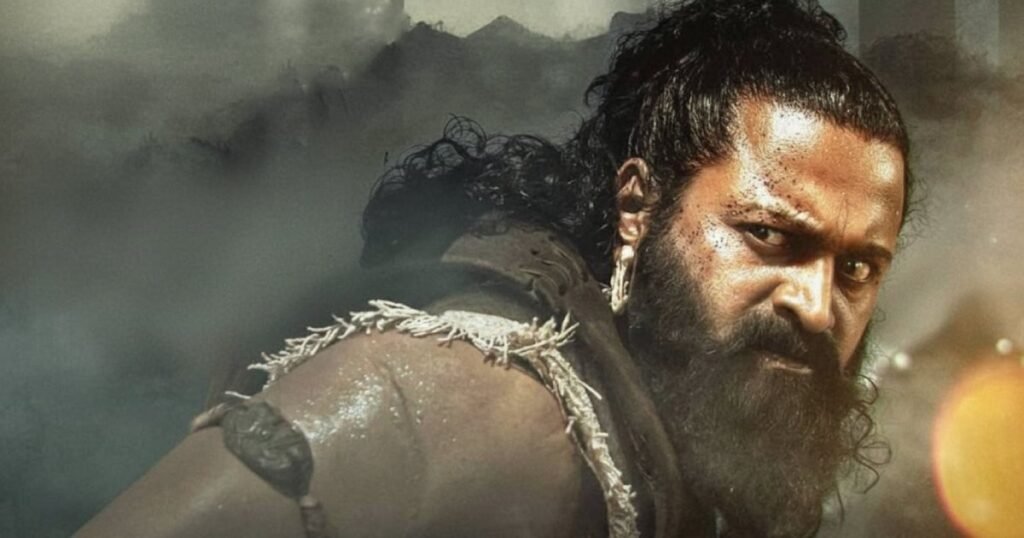
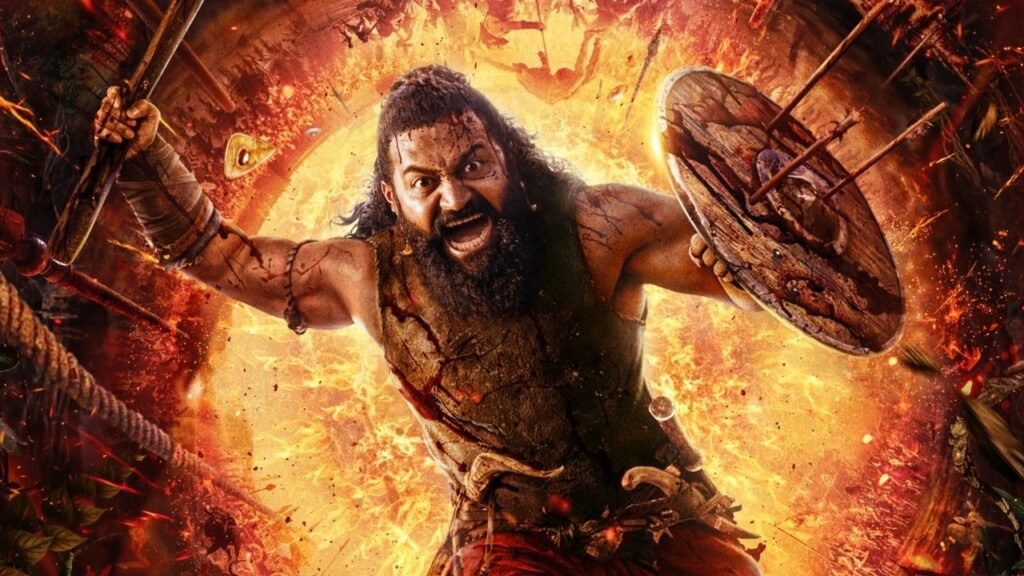
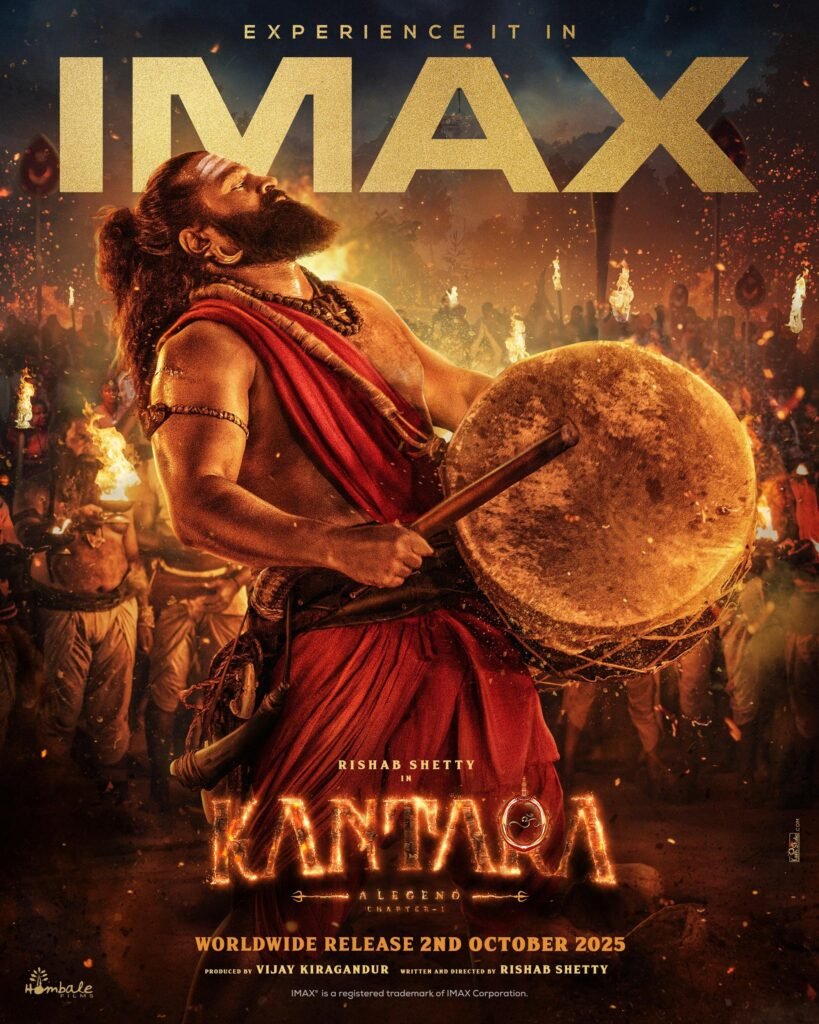
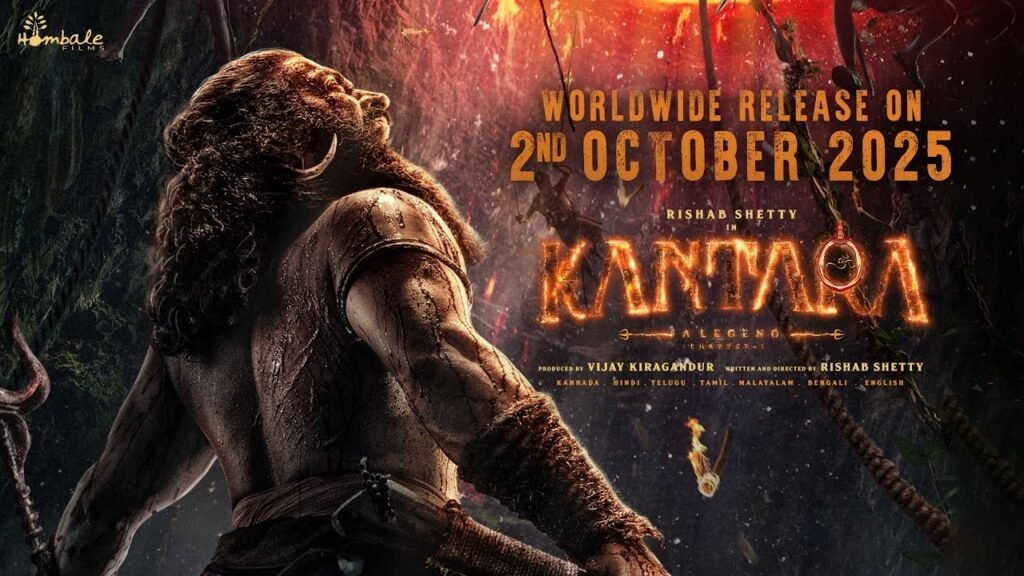
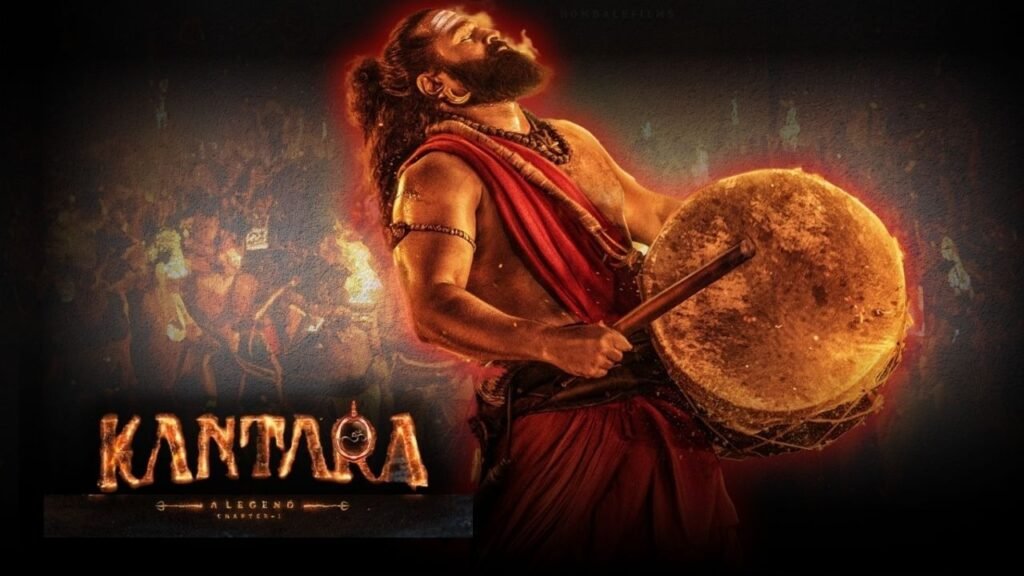
Cinematic Direction by Rishab Shetty
Rishab Shetty proves once again why he is considered a visionary filmmaker. His direction is sharp, emotionally charged, and layered with symbolism. Each frame feels purposeful, guiding the viewer through a spiritual as well as cinematic journey.
Visual Storytelling Techniques
The film uses long takes, sweeping aerial shots, and slow-motion sequences that elevate the drama. Unlike many mythological films that rely solely on spectacle, Kantara Chapter 1 prioritizes emotion and meaning. Even in its most action-heavy moments, the visuals carry symbolic weight.
Symbolism and Themes
From fire representing divine anger to forests symbolizing nature’s eternal guardianship, symbolism runs deep. The central theme of balance—between man and nature, devotion and greed, tradition and modernity—serves as the spine of the narrative.
Performances by the Cast
Rishab Shetty’s Powerful Screen Presence
Rishab Shetty steps into a commanding role, blending intensity with vulnerability. His performance captures the inner conflict of a man torn between divine duty and human weakness. Audiences will be reminded why he is one of India’s most gifted actor-directors.
Supporting Characters and Their Impact
The supporting cast, featuring both established and new faces, adds depth to the narrative. Each character plays a vital role in reflecting society’s strengths and flaws, ensuring that the story never loses its human touch amidst the grandeur of myth.
Technical Excellence
Cinematography and VFX
Arvind S. Kashyap’s cinematography is breathtaking, painting the screen with lush forests, glowing rituals, and battle sequences that feel both raw and poetic. The visual effects enhance the mythical elements without overpowering the authenticity of the story.
Music and Sound Design
Ajaneesh Loknath’s music is another highlight. The haunting background score and powerful folk-inspired songs amplify the emotions, making certain sequences unforgettable. The sound design ensures that every ritual chant, battle cry, and divine whisper resonates with the audience.
Cultural and Spiritual Depth
Folk Traditions Showcased
The film beautifully incorporates rituals such as Bhoota Kola and Daivaradhane, showcasing their spiritual significance rather than treating them as mere spectacle. This authenticity enriches the cultural fabric of the story.
Connection to Indian Mythology
By linking local traditions to broader mythological narratives, the film bridges regional folklore with pan-Indian spirituality. This connection makes the story universally relatable, reinforcing the timeless struggle between good and evil.
Audience Reception and Critical Response
Box Office Performance
Within days of release, Kantara Chapter 1 shattered box office records, becoming one of the highest-grossing Indian films of 2025. Its success proves that audiences are hungry for content rooted in culture yet told with cinematic brilliance.
Critics’ Reviews
Critics have praised the film for its authenticity, direction, and emotional depth. International film festivals have also shown interest, highlighting how Indian folklore can captivate global audiences when told with honesty and grandeur.
Comparison with Kantara (2022)
While Kantara (2022) was grounded in contemporary conflicts, Kantara Chapter 1 is more mythological and expansive. Where the first film hinted at divine intervention, the prequel dives fully into the mythic realm, showing how the legacy began. Both films complement each other, enriching the franchise’s narrative universe.
Global Impact of Kantara Chapter 1
The film’s universal themes of faith, ecological balance, and divine justice have resonated worldwide. It positions Indian cinema as a powerhouse of mythological storytelling, comparable to global epics like Lord of the Rings and Gladiator.
Streaming platforms are already negotiating rights, ensuring the film reaches audiences across continents.
FAQs
1. Is Kantara Chapter 1 connected to Kantara (2022)?
Yes, it is a prequel that explains the origins of the mystical elements introduced in Kantara (2022).
2. Can someone watch Kantara Chapter 1 without seeing the first film?
Absolutely. While knowledge of the first film enriches the experience, the prequel stands strong on its own.
3. Is Kantara Chapter 1 based on true events?
The film blends folklore, mythology, and artistic imagination. It isn’t based on documented history but draws heavily from cultural traditions.
4. Who composed the music for the film?
Ajaneesh Loknath, who also worked on Kantara (2022), composed the soulful background score and songs.
5. What are the main themes of Kantara Chapter 1?
The film explores man’s relationship with nature, divine justice, greed versus devotion, and the timeless balance of the universe.
6. Will there be Kantara Chapter 2?
Yes, reports confirm that Rishab Shetty is working on continuing the saga, with Chapter 1 laying the foundation for an expansive universe.
Conclusion
Kantara Chapter 1 is more than a film—it’s a cultural milestone. By blending mythology, folklore, and stunning filmmaking, Rishab Shetty has crafted a cinematic masterpiece that will be remembered for generations. Its success demonstrates that Indian cinema thrives when it embraces its roots while reaching for universal themes.
If Kantara (2022) was a spark, Kantara Chapter 1 is the roaring fire that will keep the franchise burning bright.
For anyone who believes cinema should move the heart and soul, this is not just a must-watch—it’s a once-in-a-generation experience.















